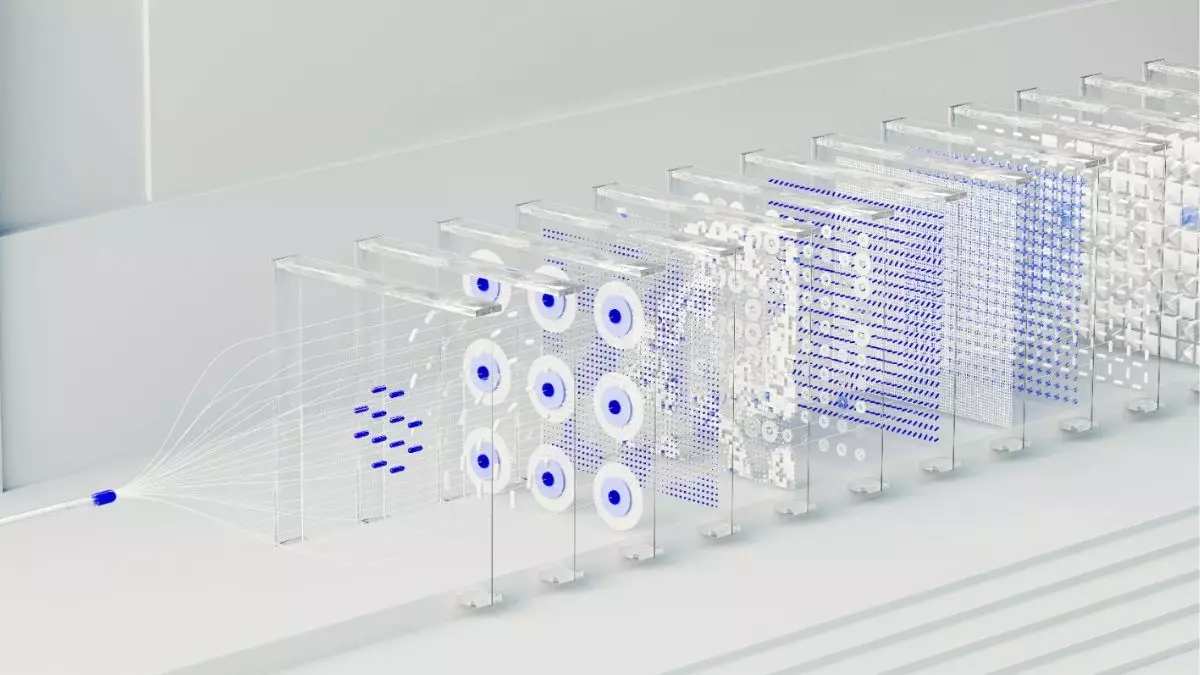In recent years, the intersection of artificial intelligence (AI) and robotics has piqued the interest of researchers and entrepreneurs alike, culminating in the emergence of innovative startups such as Tetsuwan Scientific. Based in San Francisco and co-founded by CEO Cristian Ponce and CTO Théodore Schäfer, this ambitious venture seeks to redefine how scientific research is conducted. Founded in 2023, Tetsuwan Scientific has spent 18 months developing its revolutionary AI-driven robotics system, now aiming to automate every facet of the scientific inquiry process—from hypothesis formulation to experiment execution, data analysis, and drawing valid conclusions.
The conceptual underpinnings of Tetsuwan Scientific’s vision lie in the recognition of a key limitation in current laboratory automation: the predominant focus on high volumes of specific experiments rather than a wide array of varied scientific inquiries. Existing lab robots typically necessitate labor-intensive programming to replicate predefined protocols, which fractures the potential for them to act as true scientific partners. According to the company’s philosophy, this process has devolved into a mere assembly line of robotic tasks rather than a collaborative involvement in scientific discovery.
Ponce articulated a vision for a more profound intelligence within robots, asserting that the current systems cannot grasp scientific intent, thus hampering their ability to autonomously conduct experiments. His company aims to address these shortcomings through a dual focus on sophisticated AI software and versatile robotic hardware.
The crucial breakthrough for Tetsuwan Scientific is their integration of large language models (LLMs) to communicate complex scientific ideas to their robotic systems without necessitating exhaustive lines of coding. In a recent interview with TechCrunch, Ponce emphasized the potential of the Retrieval-Augmented Generation (RAG) framework, which could play a pivotal role in diminishing AI “hallucinations,” that is, instances when AI generates output that strays from factual accuracy.
This innovative approach addresses the challenge of interpreting and executing science-focused programming, significantly altering the traditional relationship between scientists and their robotic counterparts.
Notably, Tetsuwan Scientific is pioneering an entirely new class of robots characterized by their unconventional design. Rather than humanoid forms, their robots are large, square structures resembling glass containers that can autonomously evaluate experimental outcomes and modify procedures without human oversight. Equipped with advanced AI software and sophisticated sensors, these robotic entities are designed to grasp essential technical standards—such as calibration protocols and liquid classification properties—enabling them to imitate a scientist’s analytical thought process.
Their unique approach diverges from standard robotic implementations in laboratories today. These robots could significantly enhance the efficiency of research processes by alleviating tedious manual protocols and consistent error rates commonly associated with human oversight.
At present, Tetsuwan Scientific is collaborating with La Jolla Labs, focusing on RNA therapeutic drug development. This partnership marks a significant milestone for the startup as it begins to implement its vision in real-world scientific applications. Although the startup has not yet publicly launched any fully developed products, its aspirations are clear—aiming to create autonomous robotic scientists capable of independently undertaking the entire spectrum of scientific discovery.
The journey toward realizing this ambitious objective is fraught with challenges, but the potential benefits are enormous. The automation of scientific processes could revolutionize research and development, fostering rapid advancements in various fields, including medicine, biotechnology, and environmental science.
As Tetsuwan Scientific forges ahead in the realm of AI-driven robotics, it stands on the brink of potentially transforming scientific research methodologies. By addressing existent limitations in laboratory automation and fostering a collaborative environment between machines and scientists, the startup is setting the stage for a future where robotic researchers augment human capabilities. Such advancements hold the promise of accelerating innovation, ensuring more efficient experiments, and perhaps even unlocking the mysteries of the universe at a pace previously thought unattainable. As the journey unfolds, the scientific community watches with bated breath to see how Tetsuwan Scientific can harness technology for the greater good in the pursuit of knowledge.


Leave a Reply